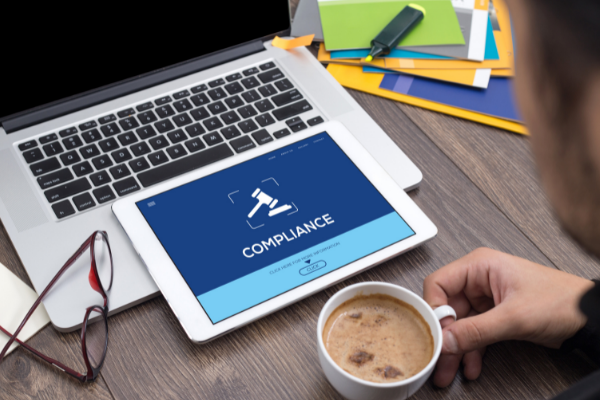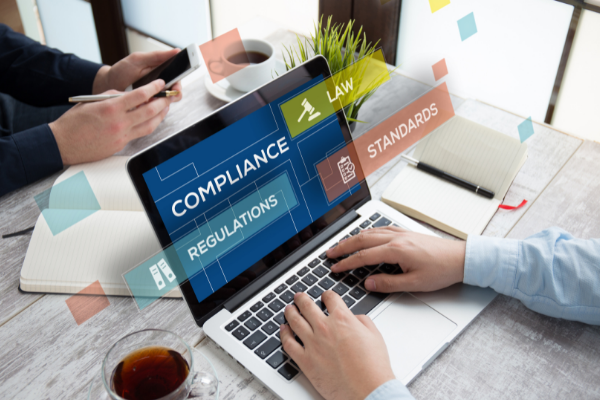BY:
SHARE:

The Notice to Exporter update (2024/08), a crucial document issued on 25th April 2024, provides detailed information about Compound Settlements made to UK Exporters between January and March 2024.
The update highlights six settlements, the highest being a staggering £971,726. This amount was imposed for unlicensed exports of Military Goods, underscoring the financial implications of non-compliance with export control regulations.
It is crucial that you submit a voluntary disclosure to HMRC regarding any non-compliance with export control. NTE 2024/08 advises that over the last year, there has been a concerning increase in unlicensed exports, incorrect license usage, and breaches of license conditions, which could potentially lead to severe penalties and reputational damage.
Unlicensed Exports refer to the act of exporting goods without a valid export license. This could be due to the exporter not obtaining a license from SPIRE, or if they did, not declaring it to HMRC. It's important for exporters to clearly instruct the entity declaring their export to HMRC via CHIEF. If the license was not declared to CHIEF and LIC99 was declared instead, that error cannot be rectified using a C81.
The replacement for CHEIF, the Customs Declaration Service, is a key update. It does not use LIC99, but it is crucial to understand the Document Code(s) applicable to your goods to ensure your export can be declared to HMRC without delay, demonstrating your commitment to compliance.
Incorrect License Usage and/or a Breach of License conditions is another area of compliance. This could potentially relate to “Open” approvals, OGELs (Open General Export Licenses), or GEA’s - the UK Retained General Export Authorisations. These types of licenses provide flexibility in terms of acceptable classification and destinations. Once the exporter has a SPIRE account, registering for an OGEL or GEA is a straightforward process. The ECJU must confirm the registration has been approved by confirming the exporter’s license number. Once this has been received, the exporter can use their registered license immediately.
Export Control Classification is not just a part, but a vital and weighty part of Due Diligence. Assessing the Goods, Software, and Technology against the Consolidated List to ascertain the Military or Dual Use classification is paramount. The exporter must know the location of the consignee and end user to be able to consider the validity of the license. The responsibility to ensure the license can be used, that it is valid for the exporter’s requirements, and the obligation to be able to adhere to the license Terms and Conditions, must all be considered prior to registration and subsequent use of the license.
The checks and balances of license compliance must be addressed at the beginning of any assessment to avoid non-compliance later. After reading an OGEL, the best advice would be to take a break and reread it! Different licenses have different Terms and Conditions. The Military Goods Software and Technology OGELs require a Consignee Undertaking. Certain OGELs are for specific reasons, such as Military Goods “for repair” or “after repair.”
Understanding and acknowledging a license's requirements is an important part of export control due diligence. Any potential license should be reviewed in detail before proceeding with an OGEL or GEA registration. One option is to access the license conditions via the OGEL Checker (the “Check Conditions” button) to enable a documented review of the license requirements to be retained on file.
Compliance responsibilities for any exporter of strategic goods are referenced in the Notice to Exporters update 2024/08. The ECJU updated the checklist of internal export control compliance procedures in December 2023, and it is a valuable reference point to highlight compliance responsibilities for any business exporting or transferring Strategic Goods, Software or Technology. The document emphasises that export controls cannot be one individual or department’s responsibility. Compliance of all kinds must be a team effort for any business, and export controls are no exception to this requirement. Different business functions must be input into a business compliance programme, supported by training and awareness, backed with written procedures and processes.
The compliance code of practice for export licensing is a helpful guidance document issued by the Export Control Joint Unit, updated in December 2023. The code provides “best practice” requirements for a business to create an Export Control Trade Compliance culture within an organisation through a commitment to internal and external compliance. The latter is vital in discussions with customers as part of due diligence and for an ECJU audit to demonstrate the business commitment to the compliance inspector.
When the exporter declares their goods to HMRC, they are identified by the EORI - Economic Operator Registration and Identification Number. Various business functions can contribute to the information required by Customs. If the goods are sold, sales will provide the valuation from the quotation. Technical or engineering could classify the goods against the UK Tariff to declare the 8-digit Commodity. When the goods are packed by the warehouse or dispatch function, the number and type of packages must be declared.
Customs Compliance is a team effort; subsequently, Export Control compliance adds more responsibility to the business and its functions.
Even if the item is not controlled, there still could be other reasons which could make an export licensable. Trade Sanctions and Embargoes are examples of non-controlled goods requiring a license. The creation of OTSI, the Office of Trade Sanctions Implementation, will emphasise trader compliance to ensure that UK Businesses understand trade sanctions. OTSI are currently in the set-up phase; the government information confirms the department will be up and running in 2024, once its new legal powers are in force.
If you are interested in exploring this topic further, you might find it worthwhile to consider the training courses and live clinics offered by Strong & Herd LLP:
OneCall™ Email assistance as and when required; A one-call solution for all your import, export and customs enquiries. Export help. Import help. Customs help.
Stay informed about customs and international trade matters by subscribing to our OneCall™ service. This comprehensive offering includes a dedicated email helpline for support, timely practical updates direct to your inbox (Did You Know?), monthly UK Customs & Trade Briefings and access to an interactive members' area with an exclusive community for our subscribers.
International Trade Updates & Spotlight Newsletter
Subscribe to our free information emails covering international trade topics...
MORE INDUSTRY INSIGHTS...













